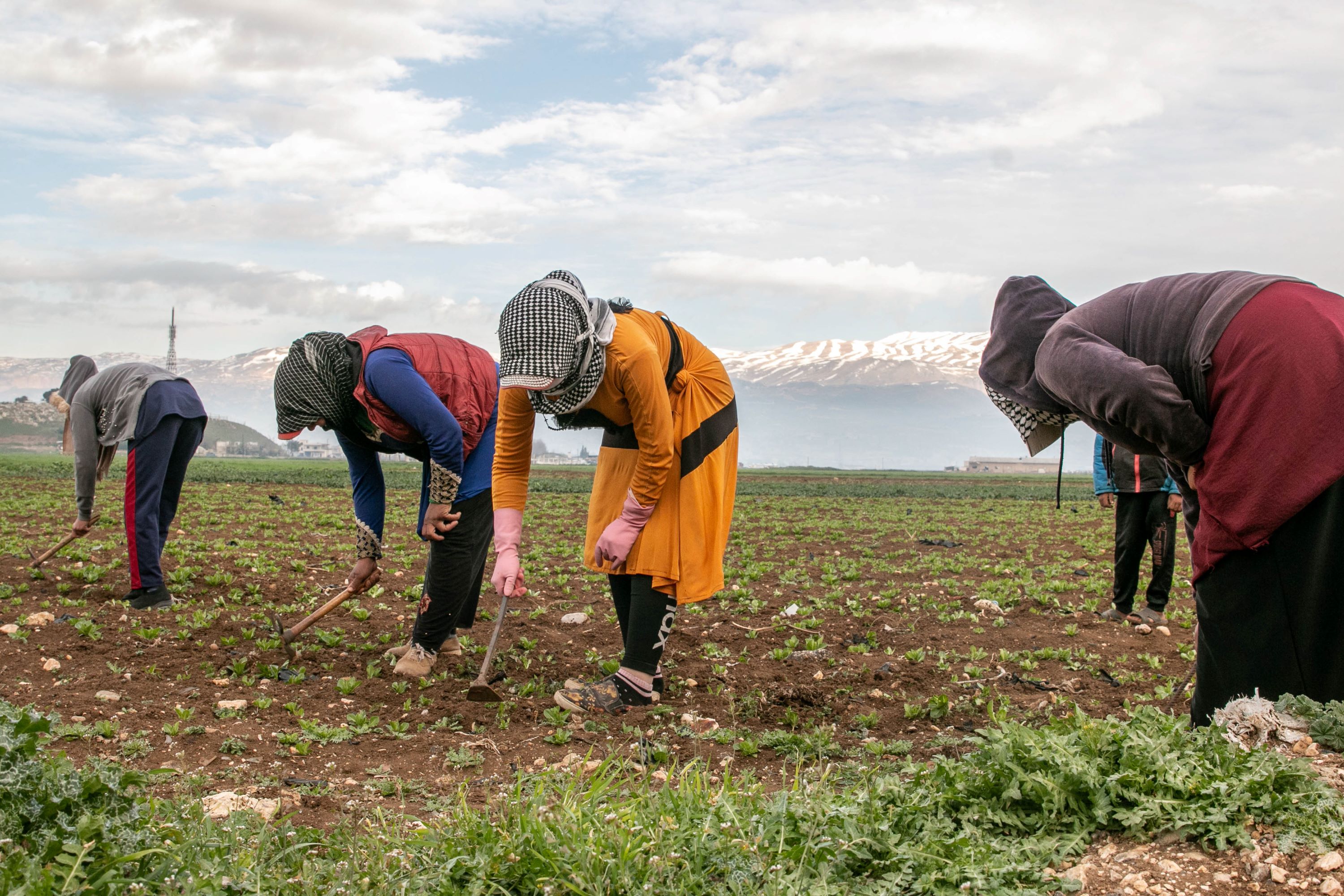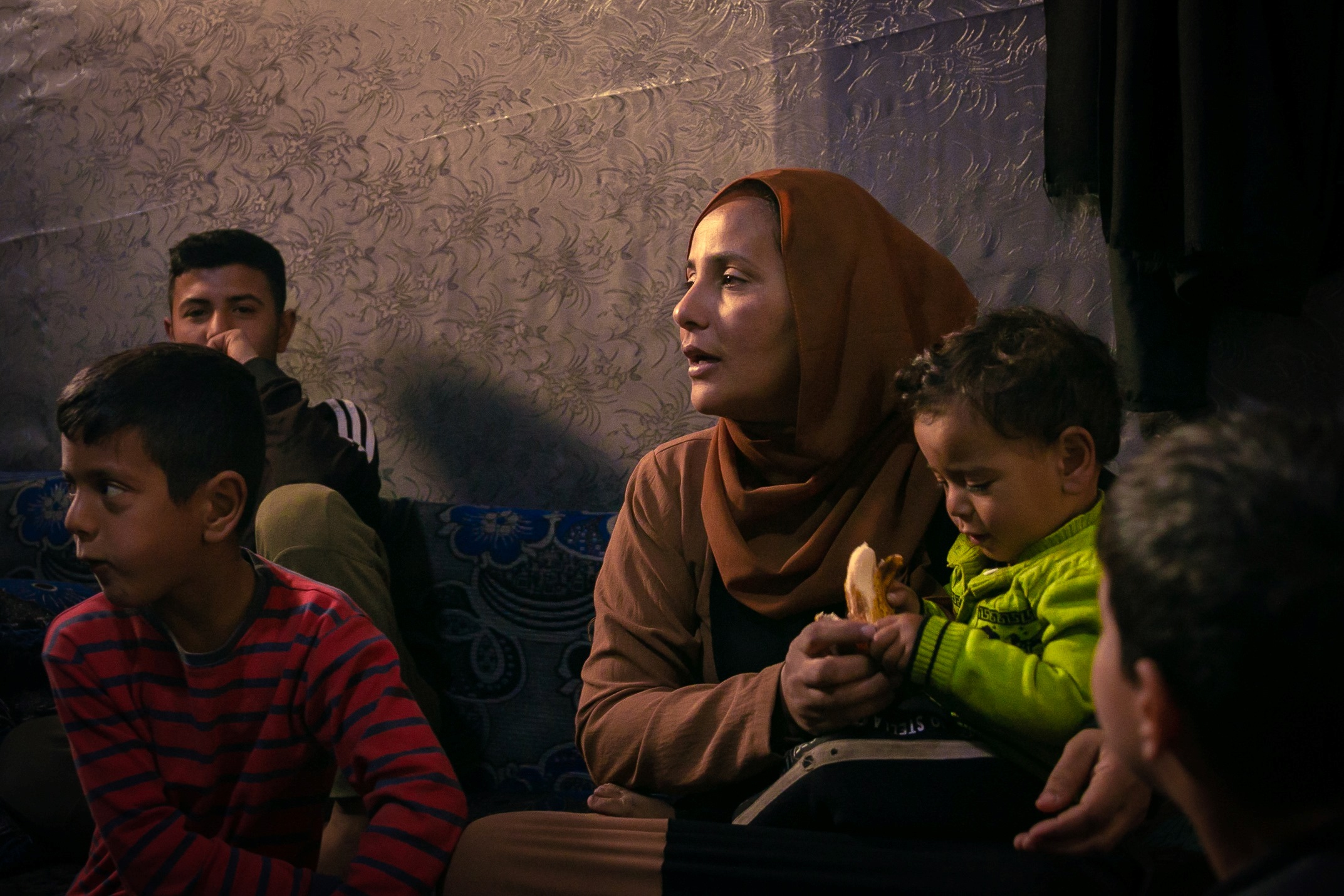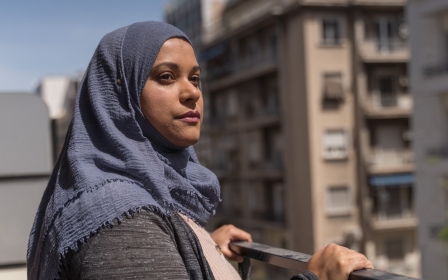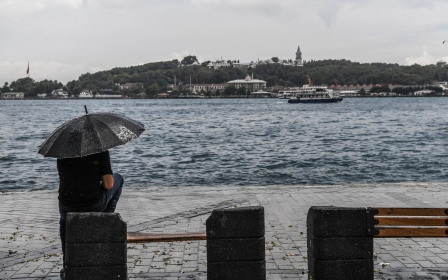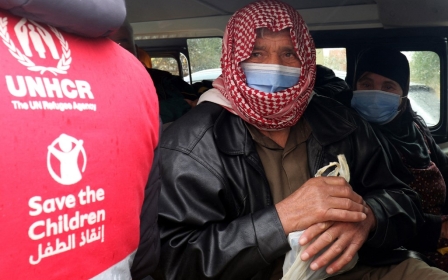Syrian women toil in Lebanon’s fields while facing abuse and sexual exploitation
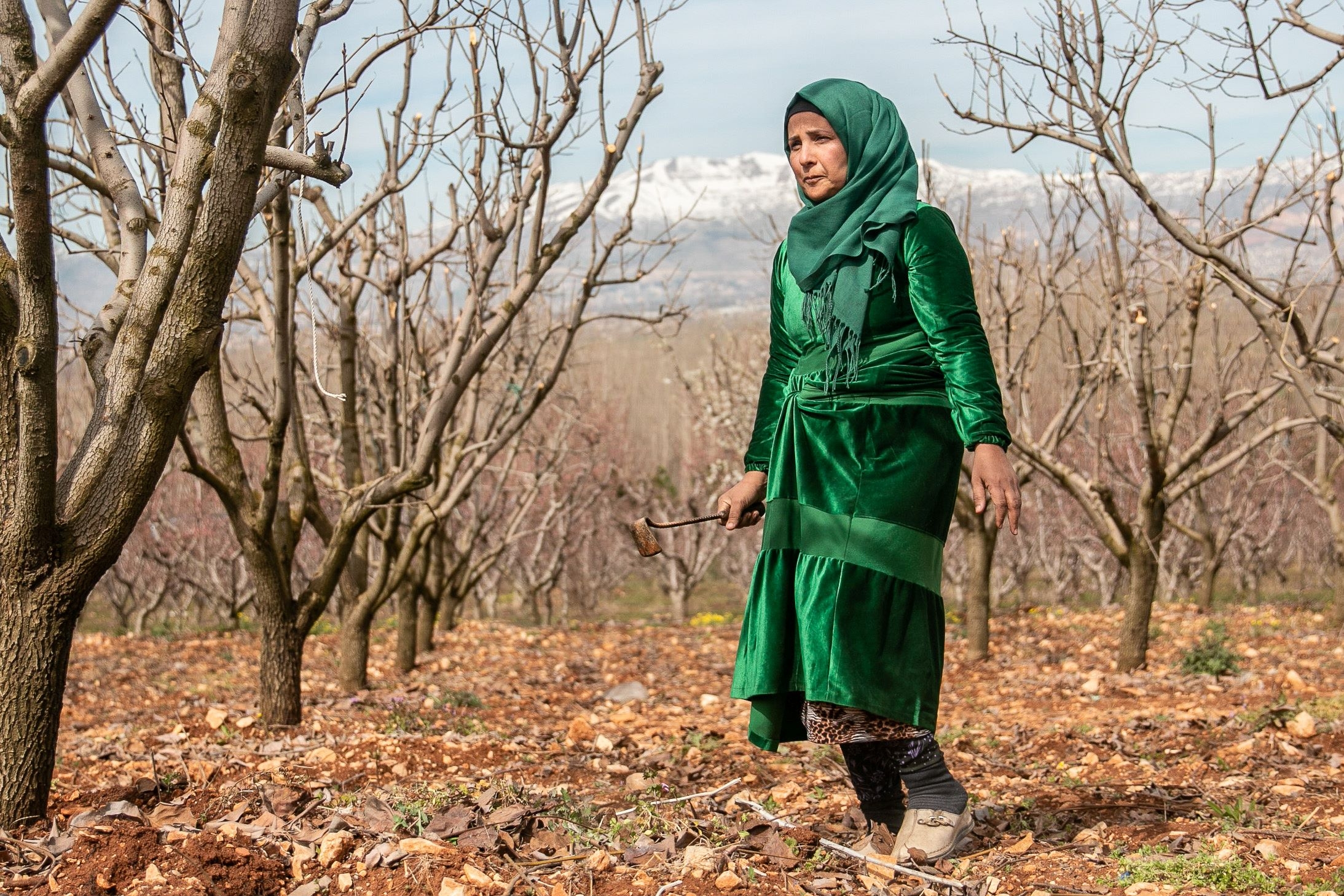
Khawla Hassan bends over to dig holes around the trees that will soon bear apples, mangoes, and plums. She is 38 years old and has given birth to eight children, fled from war-torn Aleppo in Syria, and rebuilt her family’s life in Lebanon.
On this orchard close to the Bekaa valley town of Anjar, the still hibernating trees dance in the gentle breeze, overlooking the snowy mountains of Mount Lebanon. Khawla works here almost every day to provide for her family.
“I don’t like working in the field. I wish I could go back to sewing, I would be at home next to my children and working at the same time," she sighed, remembering the job she had in Syria.
According to a 2021 study by the United Nations Food and Agricultural Organisation (FAO), 85.7 percent of the agricultural workers in Lebanon are employed informally and most of them are women.
"Syrian women represent the vast majority of workers in the fields. And they earn half as much as men for the same work," Zeinab Dirani, a field officer for Fe-Male, a feminist NGO with an office in Lebanon's Bekaa valley, confirmed.
New MEE newsletter: Jerusalem Dispatch
Sign up to get the latest insights and analysis on Israel-Palestine, alongside Turkey Unpacked and other MEE newsletters
They represent a cheap and expendable labour force. As Syrian refugees are barred from most professions in Lebanon, working in fields next to their refugee camps is often the only employment these women can find.
Hard working conditions
In peak season, Khawla’s daily salary does not exceed 100,000 lira a day (about $1, according to the current black market rate).
With this meagre amount, she has to feed her family and pay $65 worth of rent and electricity per month for their tent in a medium-sized refugee camp near Bar Elias.
"My husband is a truck driver, but our two salaries are not enough for six people," Khawla said.
And from November until May, she doesn't even have a salary, because when it is winter, most farms don’t need workers.
Her only task at the moment is to take care of the orchards managed by Ali Ibrahim, a Syrian janitor who lives on the land with his family.
"In winter, the owner does not pay us, but he allows us to collect firewood for free," the man from Aleppo explained.
'In winter, the owner does not pay us, but he allows us to collect firewood for free'
- Ali Ibrahim, refugee
Khawla’s life unfolds according to a tight schedule.
“I get up between 6 and 7am, prepare my children for school, and then clean the tent up before going to work," she told Middle East Eye.
Then, together with the other Syrian fieldworkers, she leaves with her 16-year-old daughter, Ikhlass, and her two-year-old baby, and heads to the fields where they will work that day.
“We work every day between 5 to 10 hours a day. We don't have any days off nor vacations,” the Syrian mother complained while digging around the trees.
Khawla carries her youngest child throughout the entire day while she works, which she says has led to chronic pain.
"I have constant pain in my legs and feet. I take painkillers, but I can't always afford them," Khawla said.
On their own
Since 2019, Lebanon has endured one of the world’s worst economic crises. Fuelled by the collapse of its banking sector and the corruption of the country’s political elites, inflation has hit an all-time high.
As cooking oil and gas become inaccessible, 82 percent of Lebanese and 97 percent of Syrians in Lebanon live in multidimensional poverty.
Khawla and her family rely on limited assistance from the United Nations High Commissioner for Refugees (UNHCR), which is responsible for the Syrian refugees in Lebanon.
"We get a monthly financial aid of 5m lira [$50] that we can only use in supermarkets, which cheat us and keep a percentage of our money," she said.
She feels abandoned by the UNHCR. "They don't help one of my sons, who suffers from a disability. Plus, we've been waiting for almost two years for them to add my youngest son to our family file," she said.
The Lebanese state does not provide any support to Syrian refugees in the country. In 2022, in line with a "voluntary return" policy to push them back to Syria, the army carried out raids in the Bekaa camps to confiscate televisions and satellite dishes - one of many ways to ramp up the pressure.
"They came while we were sleeping. Mohammed, my husband, is registered, so they didn't do anything to us. Other men without official papers were brought to the police station and beaten up before being released," Khawla explained.
Risks of violence
If Syrian refugees face racism and discrimination in Lebanon, quite often, the violence comes from the hands of the shawish - the man responsible for carrying out the landowner’s orders on the fields.
“The one I work with is racist and does not behave properly. We are 40 workers and we need to work like machines,” Khawla reported.
“He treats us like slaves."
'They scream at us to go faster and insult us. And if we are too slow to pick up the vegetables, they hit us'
- Khawla Hassan, refugee
The shawish often uses violence as a form of pressure to meet productivity quotas. "They scream at us to go faster and insult us. And if we are too slow to pick up the vegetables, they hit us," she added.
Fe-Male's Dirani concurred: "In the field, I have seen a lot of violence from the shawish, who can go as far as sexually harassing women."
Many remain silent for fear of getting punished or fired. "Police are not an option, because there won't be any follow-up," Dirani explained.
When leaving a violent shawish is not possible, the women have no choice but to hold on and support each other. "We stick together. If I get sick, another woman takes over my daily chores," Khaoula shared.
Informal strikes
As there are no formal contracts in most of Lebanon’s agricultural work, only trust dictates the relationship between the workers and supervisors. For instance, informal strikes are often the only way women can demand wage increases.
"Female labourers stopped working many times in the past in order to pressure the shawish to increase their salary," Ibrahim, the Syrian janitor in Anjar, said.
When field labourers from the Bekaa mobilise through these informal strikes, all the shawish in the valley need to agree upon a daily salary.
"We hope to be paid $6 a day in the next season," Khawla said.
Syrian fieldworkers have few other options to exercise their rights. As Lebanon does not formally recognise them as refugees, they are stripped of any political recognition and social services.
Dreams of a better future
Khawla finds support from her family, notably her daughter Ikhlass, who shares her tasks.
When they return from the fields, another informal job awaits. "We cook for three hours and clean our tent for two more hours,” Khawla sighed.
She also has to take care of her 7-year-old son, Hussein, whose physical disability requires more attention.
"Sometimes it's too much, I'm not in the mood, but I have to keep my spirits up for him," the mother of eight said with a tired voice.
It's 10 pm, and the valley is getting cold. Both mother and daughter are exhausted from what feels like two days of work.
Thick blankets hide the other children, deeply asleep around the stove in the centre of the tent.
"I work for them. My dream is to give my children a decent life with adequate housing and better education,” Khawla said.
In another life, her 12-year-old daughter, Israa, would become a lawyer, and her son Zakaria, 16, would go to Germany to be a photographer.
Far from the fields they dream of leaving, but to which they will inevitably return the next morning.
This article is available in French on Middle East Eye French edition.
Middle East Eye delivers independent and unrivalled coverage and analysis of the Middle East, North Africa and beyond. To learn more about republishing this content and the associated fees, please fill out this form. More about MEE can be found here.


